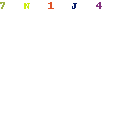Chad is a landlocked country located in Central Africa. With a population of over 15 million people, it is the 22nd most populous country in Africa. The Republic of Chad is a presidential republic and its military consists of three branches: the Chadian National Army (ANT), Gendarmerie Nationale Tchadienne, and Police Nationale Tchadienne. The Chadian National Army is responsible for defending the country’s borders and sovereignty, as well as providing security to its citizens. In terms of defense spending, Chad spends approximately $247 million annually on its military, making it one of the highest defense spending nations per capita in Africa. The country also participates in several regional peacekeeping missions such as those in Sudan and Mali. Chad is also a member of the Economic Community of Central African States (ECCAS) and has close ties with other ECCAS members such as Cameroon and Gabon. See naturegnosis to learn more about the country of Chad.
Defense
The defense, which is formally based on military duty, (2009) comprises about 25,000 men and is under reorganization. Semi-military security forces amount to 10,000 men. The political situation in Chad has for a long time been characterized by civil war with the intervention of Libya 1966-87, with continuation 1998-2003 and with war actions from 2003, partly in the neighboring region of Darfur in Sudan, where the Chad government in October 2006 supported the opposition with arms, partly in the Central African Republic.
- COUNTRYAAH: Do you know where is Chad on the world map? Come to see the location and all bordering countries of Chad.
The situation in Chad and the neighboring Central African Republic, as well as large flows of refugees from Darfur, caused regional problems, which meant that the EU (EUFOR Chad/RCA) from 2008 to March 2009 placed 3,700 people in the area of protection of, among other things. civilians. It has been decided that this strength should increase to 6,000 men with an extended mandate. Since 2007, the UN has 350 people in the area (MINURCAT) to train police, etc. The yet useful military equipment is semi-modern and of mixed Soviet and Western origin.
In 1996, defense costs amounted to 2.7% and in 2007 to 1.1% of GDP. Chad participates in the UN peacekeeping operation in Ivory Coast. In EUFOR Chad/RCA with its 3,700 men, 45 countries participate, of which more than 60 have in Chad: Belgium, Finland, France, Ireland, Italy, Poland, the Russian Federation, Spain, Sweden and Austria. To see related acronyms about this country, please check ABBREVIATIONFINDER where you can see that TCD stands for Chad.

In September 2014, Chad introduced a new law against homosexuality that provided 15-20 years in prison and fines of US $ 100-1,000. The law sparked protests from international human rights organizations.
In November 2014, the trial began against the country’s former dictator Hissène Habré in Senegal. Witness after witness could tell of the widespread torture under Habré’s dictatorship.
Until 2014, Chad was located on the outskirts of the Nigerian Boko Haram area of operation. Chad received refugees from Nigeria, but were not themselves involved in fighting. That changed in 2015. Nigeria, Niger, Chad and Cameroon agreed from the beginning of 2015 to conduct joint military operations against Boko Haram. Boko Haram therefore also began to carry out operations in Chad, but as the movement was severely weakened by the West African military offensive, it could not conduct offensive operations but instead resorted to suicide bombings. In June, 2 suicide bombers blew themselves up in the capital N’Djamena, killing 38. The following month, a suicide bomber burst into the capital’s largest market next to the city’s main mosque, killing 15 and injuring 80. The movement’s desperate actions continued. Koulfoua in Lake Chad. As of October, Boko Hama had been active in the area, attacking smaller military posts, but suffering significant losses. The government therefore declared from November the area around the western part of the lake in exceptional condition. Boko Haram killed over 200 in Chad during 2015, abducted hundreds and drove 70,000 on the run. The country already housed 500,000 refugees from the conflicts in neighboring countries: Nigeria, Sudan, Libya and the Central African Republic.
In the shadow of the drastically deteriorating security situation, in July Parliament passed a new draconian terror law with a very vague and general concept of terror. Even minor misdemeanors could yield from 20 years to life in prison, and at the same time the possibility of the death penalty was extended. Already in August, authorities executed 10 suspected Boko Haram members after a closed trial. It should be seen in the shadow that the last execution had taken place in 2004 and that in 2014 the country had announced that it would completely abolish this penalty.
At the COP21 climate summit in Paris in December, Chad highlighted the problem of Chad Lake, whose surface area had been reduced by a factor of 8 since 1973 due to global climate change triggering desertification in the Sahel.
In January 2016, Idriss Déby took over the chair of the African Union from Zimbabwe’s Robert Mugabe for a one-year term. He stated on his accession that his main goal was to step up the fight against Boko Haram. In March, the AU decided to increase the West African force (MNJTF) fighting Boko Haram to 10,000 men.